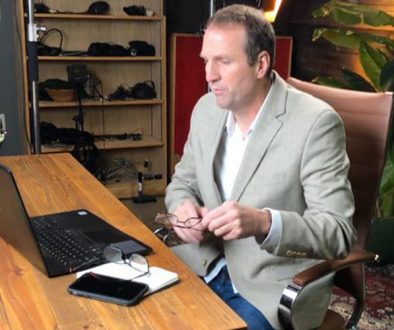The Baffling Lack Of Innovation In Addiction Treatment
Don’t Want To Make Enemies:
Advocacy is one of my core responsibilities as the Executive Director of FAVOR Greenville. It is a new experience for me and I am learning how to effectively fulfill this role. Prior to coming to FAVOR Greenville I worked in very traditional clinical settings. I have been director of a co-occurring community based program, a substance use disorder outpatient clinic, an inpatient residential facility and various recovery residences. I am also a person in long term recovery who found recovery through the most traditional and orthodox pathway possible. However, I have become completely baffled by the one size fits all approach to treatment and recovery. I did not clearly see this when I worked in those traditional settings. When you are in the bubble it is hard to maintain objective clarity. I have been told that I sound angry when I make statements challenging treatment and pushing for change. I’m not angry. I’m concerned and worried about the current state of affairs. But most of all I am 100% baffled by the lack of innovation that exists in the addiction treatment industry. It makes no sense from a patient care standpoint and it makes even less sense from a business standpoint.
There Are Multiple Pathways In Recovery But One Pathway In Treatment:
Nearly all residential inpatient programs are run the same way. The Minnesota Model or some close variation will carry the day. No matter the geographic setting or length of stay or cost or staff credentials. I had a conversation with a person who has worked in treatment since the 1980’s and was told that things are essentially the same now as then. The 80’s were 35 years ago. Of course there are some exceptions but these are few and far between. Furthermore, there is only one recovery pathway promoted in these programs and that is 12-step recovery. There really is no option for a person who wants to pursue an alternative recovery program. Patients who challenge this conventional wisdom are labeled treatment resistant and told failure is inevitable. I have had experiences where people have shared that they were told relapse was inevitable if they did not do “90 meetings in 90 days”. Relapse is NOT inevitable if you don’t do 90 meetings in 90 days and success is not guaranteed if you do. The fact is that recovery is maintained in a wide variety of ways. As a professional organization these programs have a responsibility to explore all possible options for treatment. If addiction is a disease it warrants the full spectrum of treatment options. We should not just rinse and repeat the same approach over and over.
Dr. Richard Saitz, director of the Clinical Addiction Research and Education Unit at Boston University School of Medicine puts it this way: “If you go to a hospital and they don’t have what you need, they’ll make it available or refer you to a place that has what you need. But at drug and alcohol treatment programs you get what they offer. And more often than not, what they offer is group counseling, the twelve steps, and all-around one-size-fits-all approaches to treatment…” (see: Inside Rehab by Anne Fletcher for more).
True Innovation Seems To By-Pass Addiction Treatment:
Rotman Management Magazine states that “every industry has it’s governing beliefs”. For example in retail it’s believed that purchasing power and format predict bottom-line. In telecommunications it’s customer retention. These beliefs tend to drive decisions and many times will be a barrier to innovation. According to Rotman no industry is beyond developing dysfunctional governing beliefs and many believe healthcare is especially vulnerable in this area. The complexity of healthcare coupled with the righteousness of the mission (saving lives) makes any outside challenge and push for change easily suppressed. “You don’t understand patients will suffer if we make these changes” is a trump card that is not easy to overcome. In addiction treatment it is even more pronounced. In this arena we are faced with sacred ground of 12-step recovery. There is no room for critical assessment of the “program” because the “program” is beyond reproach. To paraphrase: “no one fails unless they stray from the prescribed program”. Ostensibly any failure is the fault of the patient.
If cancer was resistant to one type of treatment would we blame the patient or would we seek alternative treatments?
The Governing Beliefs of Addiction Treatment
I have become curious about the governing beliefs of addiction treatment. Of course it is impossible to know exactly what these beliefs are. There is no “keeper of the beliefs”. However, I think I can make an educated guess on what these beliefs may be:
- In order for a patient to find recovery he must do exactly as told and surrender to the process. If he does not surrender he needs to experience more consequences and become willing to go to any length. Failure, treatment drop out or “relapse” is not the fault of the treatment program it is the fault of the patient.
- There is one generally prescribed pathway to recovery and ideally it involves completion of a 12-step oriented residential rehab program, followed by an IOP program, followed by 90 meetings in 90 days and then ongoing involvement in meetings for the rest of the person’s life.
- Relapse means we need to return the patient and “re-do” all previous procedures. The only exception may be the specific facility. In other words, the patient should do another residential rehab/IOP/”90 in 90″. Patients are passed from facility to facility.
The Current System Has Helped Many People
None of this is to say that the current treatment system hasn’t helped people. Many wonderful staff and many wonderful facilities exist. This is simply to say that the vast majority of people fall through the cracks (National Household Survey: 90% of those needing help aren’t getting help). We find ourselves in the middle of an epidemic of epic proportions. The face of addiction is changing. Younger people are entering treatment with more complex and diverse issues. Specific drugs require specific responses. For example: opioid treatment requires something completely different than alcohol treatment.
All of this seems so logical. Alcoholics Anonymous, treatment and the Minnesota Model came on the scene in an entirely different era. The rise of prescription drugs, the legalization of marijuana, the tearing away of the taboo around heroin, and the culture at large makes a new approach absolutely necessary. How could it be any other way?
Acceptance Of The Problem Is the First Step
We stand no chance at a solution until we acknowledge the problem. I am convinced that the very smart, caring and compassionate people who work in this field could come up with a truly innovative solution. But it would require a honest and open-minded exploration of our current state of affairs.
An example: 90% of those with addiction do not get help. Mostly because they “think they don’t need help”. We must find a way to engage this “denial” group. Interventions should be paid for by insurance companies and occur a higher frequency. Other creative ways of engagement should be also be explored. The default setting should not be “wait until they hit bottom”.
Nothing stays the same. All industries evolve. Education even evolves (distance learning for example). Healthcare is being forced to evolve through value based reimbursement. Addiction treatment is sure to follow or be replaced with a new mode of service for those suffering from this insidious disease.



January 25, 2016 @ 6:51 pm
Thank you!
March 18, 2016 @ 3:30 pm
what are the 12 steps
August 10, 2016 @ 2:15 pm
Reblogged this on JONESin' For Change.
August 29, 2016 @ 11:26 am
Cognitive Behavior Therapy has been pivitol in getting me sober and in recovery from eating disorder. It has helped restructure my thought process and identify feelings and my reactions to them correctly, helping me change my actions. Martha Durham, PH.D. In GVL, SC at North Main Counseling has guided me successfully through this process. I’m also on anti-depressants which has also helped.
September 5, 2016 @ 1:48 am
Very good to hear. I’m a big supporter of CBT…
May 5, 2017 @ 6:47 pm
Bravo for writing this. I have been working in the field for 20+ years and am absolutely appalled by the unwillingness of many to accept the concrete science we now have about addiction. It is a neurobiological chronic disease. 20 and 30 years ago one could make a plausible argument that the disease model was a theory. Today there is no argument, the data is irrefutable. We now know have the science and data to support the use of medication assisted treatment, yet we continue to shun its use in many treatment programs. The data is pretty clear, not only on how and why it works but also study after study showing recovery rates jumping to 60% after one year with a combination of MAT and CBT. Why as a field we have been content with 1 year recovery rates at 20% without the use of MAT or evidence based psychotherapy like CBT is baffling. This would not be tolerated with any other medical disease. Unfortunately, as long as we remain in an isolated healthcare silo change will continue to be slow and uncoordinated and people will continue to die unnecessarily from a treatable disease.